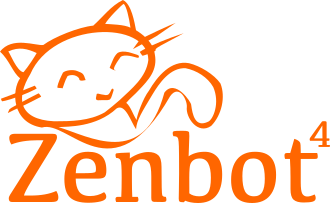What is Zenbot?
Zenbot is an open-source, command-line trading bot that facilitates automated trading of cryptocurrencies. The platform is developed using Node.js and is designed to offer users the flexibility to make precise trading decisions based on a range of configurable options and strategies. With its ability to implement high-frequency trading and supporting multiple assets simultaneously, Zenbot has gained popularity among both novice and experienced traders.
Key Features of Zenbot:
- Multi-Asset Support: Trades Bitcoin, Ethereum, Litecoin, and many more cryptocurrencies.
- High-Frequency Trading: Capable of executing multiple trades within milliseconds.
- Customizable: Open-source code allows extensive customization.
- Backtesting: Allows simulation of strategies using past data.
- Performance Metrics: Real-time performance monitoring and reporting.
What is Zenbot Used for and How Does it Work?
Zenbot is primarily used for automating trading strategies in the cryptocurrency market. Utilizing advanced algorithms and AI technologies, it aims to optimize trading decisions and maximize potential profits.
Workflow:
- Data Collection: Zenbot first gathers real-time market data, such as prices, trading volumes, and other relevant indicators.
- Strategy Implementation: Based on pre-configured or user-defined strategies, Zenbot decides when to buy or sell assets.
- Trade Execution: Executes buy and sell orders in real-time, adhering to the implemented strategy.
- Monitoring & Adjusting: Constantly monitors market conditions and adjusts its trading strategy accordingly.
- Reporting: Generates reports highlighting trading performance and executed transactions.
Why Do You Need a Proxy for Zenbot?
Using a proxy server with Zenbot can augment your trading capabilities in various ways:
- IP Rotation: For those who want to operate multiple instances of Zenbot, a rotating IP can be helpful to avoid being rate-limited or blocked by exchanges.
- Anonymity: Using a proxy can help in anonymizing your trades, making it harder for anyone to trace transactions back to you.
- Geo-Restrictions: Bypassing regional restrictions on certain trading platforms becomes possible with the right proxy server.
- Reduced Latency: Proxy servers closer to the exchange servers can reduce latency, making your trades faster and more timely.
Advantages of Using a Proxy with Zenbot
| Advantage | Description |
|---|---|
| Enhanced Security | Adds an extra layer of encryption, shielding your trades and data. |
| Improved Performance | Low-latency proxies can expedite the trading process. |
| Flexibility | Allows operations from geo-restricted regions. |
| Scalability | IP rotation allows running multiple Zenbot instances simultaneously. |
| Risk Mitigation | Helps in reducing the risk of getting banned or rate-limited by the exchanges |
What are the Сons of Using Free Proxies for Zenbot
Free proxies might appear as an attractive option, but they come with several downsides:
- Inadequate Security: Free proxies often lack advanced encryption and security protocols.
- Limited Bandwidth: You may encounter restrictions on speed and the volume of data transfer.
- Reliability Issues: Free services are known for frequent downtimes.
- Data Harvesting: Some free proxies are known to harvest user data, including sensitive trading information.
- Latency: Slow response times can result in less optimal trading outcomes.
What Are the Best Proxies for Zenbot?
When choosing a proxy for Zenbot, consider the following factors:
- Type of Proxy: Residential and Data Center Proxies have their own advantages and drawbacks. Data center proxies like those offered by OneProxy provide high speed and reliability.
- Location: Choose a proxy server closer to your trading platform’s server to minimize latency.
- Security: Opt for proxies with high-level encryption and security protocols.
- Reliability: 99.9% uptime guarantees better trading opportunities.
OneProxy’s data center proxy servers offer all these features, making them an excellent choice for Zenbot users.
How to Configure a Proxy Server for Zenbot?
To configure a proxy for Zenbot, you would generally need to modify your Zenbot’s configuration settings. Here’s a step-by-step guide:
- Purchase a Proxy: Choose a reliable proxy service like OneProxy and purchase a data center proxy.
- Collect Proxy Details: Gather your proxy server’s IP address, port number, username, and password.
- Edit Zenbot Configuration: Open the Zenbot configuration file and locate the section dedicated to network settings.
- Insert Proxy Details: Input your proxy details into the corresponding fields.
- Save and Restart: Save your configuration and restart Zenbot to apply the settings.
By following these steps, you can effectively optimize your automated trading experience, leveraging the combined strengths of Zenbot and OneProxy’s data center proxy servers.













